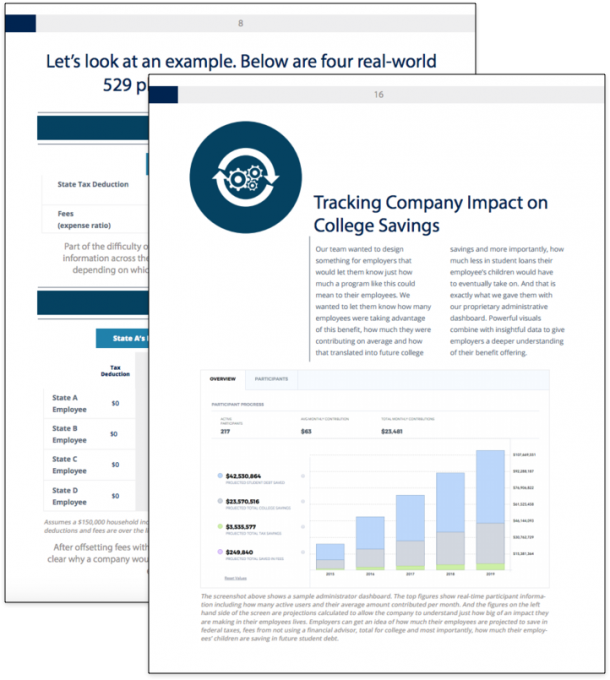Is the financial advisor your company partnered with always required to put your employees’ interests first? The answer may surprise you. Let’s take a deeper look at how Broker-Dealers and Registered Investment Advisors (RIAs) operate and are regulated. The differences between the two, while subtle, can have a profound impact on investors.
Oversight
First, brokers are overseen by the Securities and Exchange Commission (SEC) and usually belong to the Financial Industry Regulatory Authority (FINRA). RIAs are registered and regulated by either the SEC or their state financial regulatory agency. Which one depends on how much assets under management it has or how many clients it has.
Legal oversight differs between the two as well. Most brokerage activity falls under the Securities Exchange Act of 1934 while RIAs operate under the Investment Advisers Act of 1940. Neither one of these has too much affect on the average investor. It’s only when a lawsuit arises that this becomes a concern.
Compensation
According to Merriam-Webster, a broker is a person who helps other people to buy and sell property (such as stocks or houses). At the end of the day, a broker is an intermediary selling you a product. Whether it be mutual funds, retirement vehicles or college savings plans, he/she makes money on commission. For example, when your financial advisor (if he/she works at a broker-dealer like Fidelity) places you into mutual funds for your retirement, he/she makes a commission from what are known as loads or sales charges. These charges usually hover around the 5% area. For example, if a broker were to place $10,000 of yours in a fund with a 5% sales charge, they would receive $500 in commission. So, only $9500 of yours actually gets invested.
RIAs on the other hand, receive fee-based compensation for their advice. Whether it’s as a percentage of total assets under management, an hourly rate or a fixed fee, they are compensated by you, not the investment product.

Get our FREE White Paper on Employer-Sponsored 529 plans
Sign up for our newsletter to get our Free White Paper on Employer-Sponsored 529 plans and receive the latest updates from our team.
You have Successfully Subscribed!
Download Link: http://bit.ly/1X1atHF
We can see here how this dichotomy can affect an investor’s wallet. And it’s not to say that one compensation structure is better than the other. Some might have an idea of the investments they want and would rather have short-term guidance. For example, if you were to rollover an IRA, you might be willing to pay someone one time in the form of commission for advice on which investments to select. Other investors may want an ongoing relationship and account oversight. They would also want to know just how much they are paying for that service. In this case, the RIA model is a better fit.
Standards of Care
This is by far the more important aspect when it comes to RIAs and brokers. Unfortunately, it’s the least understood as well. Brokers are held to a “fair dealing” standard meaning they only have to recommend “suitable” investments to their clients. RIAs, however, are subject to a “fiduciary” standard of care meaning that all of their investment recommendations must be in the best interest of the client. You might be telling yourself that this does not make much difference, so let’s look at it another way.
Let’s say you’re in the market for a car. When you walk into a car dealership, what is a car salesman going to try and do? He will try to put you into one of the cars on his company’s lot, where he makes a commission. And it could be the case that almost every car on that lot is suitable for you. It will serve its purpose as a car. But what if you paid someone qualified to do the research for you to find the very best car for your needs? That person doesn’t care if you end up with car brand A or car brand B. He or she is giving you unbiased advice because they have no dog in the fight.
At Gradvisor, we do believe the RIA model is best suited for those employers seeking to offer college savings to their employees. Not only can our clients rest assured that we have their company’s interests in mind, we act as a fiduciary to your employees, guaranteeing them unbiased expertise.

